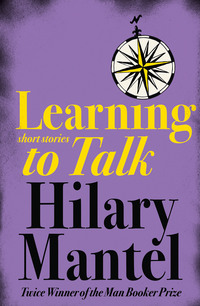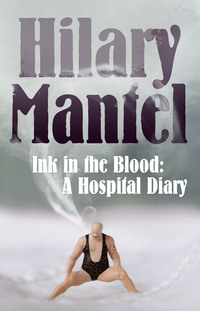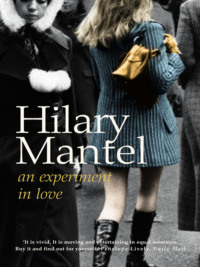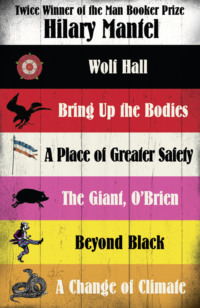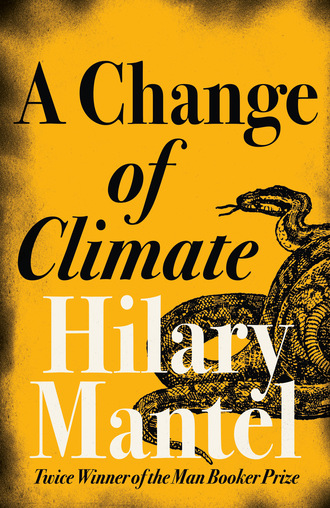
Полная версия
A Change of Climate
Emma said to her brother, ‘Ralph, how can you talk so casually about 500 million years? Most of us have trouble with…well, Christmas for example. Every December it puts people into a panic, as if it had come up on them without warning. It’s only very exceptional people who can imagine Christmas in July.’
Ralph said, ‘What you must do is to think of yourself walking through time. To go back, right back, to the very beginning of geological time, you’d have to go round the world forty-six times. Suppose you want to go back to the last Ice Age. That’s very recent, as we think of it. It would be like a cross-channel trip. London to Paris.’
‘I wouldn’t mind a trip to Paris,’ Emma said. ‘Do you think it’s any good me asking?’
‘Then, to reach the time of the dinosaurs, you’d have to go right around the world.
‘I feel confined, myself,’ Emma said. ‘To the here and now.’ She sat twisting at one of her plaits, pulling at it, finally undoing it and combing her fingers through her heavy brown hair. She glanced at herself covertly in mirrors these days. ‘Geese turn into swans’, her mother said; she meant well, but it was hardly science.
A frieze of evolution marched through Ralph’s head. Each form of life has its time and place: sea-snail and sea-lily, water-scorpion and lungfish, fern tree and coral. Shark and flesh-eating reptile; sea-urchin and brontosaurus; pterodactyl and magnolia tree; cuttle fish and oyster. Then the giant flightless bird, opossum in his tree, elephant in his swamp; it was as clear in his mind as it might be in a child’s picture book, or a poster on a nursery wall. The sabre-toothed cat, the little horse three feet tall; the Irish elk, the woolly mammoth; then man, stooped, hairy, furrow-browed. It is a success story.
At seventeen Ralph could be taken for a man, but not of this primitive textbook kind. He was tall, strong, with a clear skin and clear eyes, like a hero in a slushy book. Sometimes women looked at him with interest on the street: with a speculative pity, as if they feared other women might exploit him.
Ralph would go back to the Brecklands, in those years after the war, threading his bicycle along the narrow roads, between concrete emplacements and through lanes churned up by heavy vehicles. What he saw was victory: fences broken, orchards cut down, avenues of trees mutilated. Gates hung from a hinge, posters flapped on walls. Everywhere was a proliferation of little huts made of corrugated iron – rusting now, and without their doors. Farm workers ran about in scrapped jeeps they had salvaged. Heaps of rubbish festered amid the pines. The wind was the same, its low hum through the stiff branches. The thread-like trunks of birch trees were the same, viewed across tussocky fields; herons flapped from the meres.
The Ministry of Defence did not mean to relinquish its hold on the district. Its fences and KEEP OUT notices divided the fields. Ralph would pull his bicycle on to the grass verge, while a convoy rumbled past. Once, holding his handlebars and standing up to his knees in damp grass, he reached down for what caught his eye; it was a flint arrow-head. He turned it over in his palm, then put it in his pocket. He remembered the moment when he had found the fossil; here was another secret, buried life. He need not take it to a museum; these things are common enough. He took it home and put it on his mantelpiece, meaning to save it for his Uncle James to see when he was next in England. ‘Ah, an elfshot,’ his mother said, and smiled.
‘You like that old country, Ralph,’ his father said; the thought did not displease him. Matthew himself had kept friends in the area, church people, other businessmen of a charitable, socially responsible bent. These were the days of meeting-room hysteria and sudden conversion, of dipping people in rivers and calling it baptism. American preachers had come to the bases to service the raw spirituality of their compatriots, and found a ready audience in the poor, cold towns. ‘A plain font is requisite,’ said Matthew. ‘Nothing else.’ He hated display: Roman Catholic display, evangelists’ display, emotional display. A plain mind is requisite: nothing else.
Emma said she wanted to be a doctor. His father said, ‘Yes, if you wish to, Emma.’
Everything was permitted to her, it seemed to Ralph. She was a decisive girl, bossy, full of strong opinions strongly expressed. When Emma’s opinions cut across those of her parents, they saw contrariness; they saw a defect of character. They tried, therefore, to correct her character; it did not seem important to them to correct her opinions, for Emma was a female, and what influence could the opinion of a female have in the real world? Her opinions might damage her, and she would then revise them – but they would not damage the social order.
At least, that was how Ralph supposed they thought. For when it came to his opinions, his desires, it was a very different story.
‘So you don’t want to go into the business, Ralphie.’
This was how his father joined battle: obliquely, from the flank. He made it seem that there were only simple issues at stake, a change in family expectations. But soon enough, his weighty battalions were deployed. The issues went beyond the family. They became larger than Ralph had bargained for. They became universal.
First his father said: ‘Ralph, you’ve never given me any trouble. I thought you believed in the religion that you were brought up in.’
‘I do,’ Ralph said.
‘But now you are setting yourself up against it.’
‘No.’
‘But you must be, Ralph. We believe that God created the world, as is set down in the Bible. I believe it. Your mother believes it.’
‘Uncle James doesn’t believe it.’
‘James is not here,’ his father said flatly. It was incontrovertible; James was in the Diocese of Zanzibar.
‘I believe it as a metaphor,’ Ralph said. ‘But I believe in evolution too.’
‘Then you are a very muddle-headed young man,’ his father said. ‘How can you entertain two contradictory beliefs at the same time?’
‘But they aren’t contradictory. Father, most people got all this over with by the turn of the century. Nobody thinks what you think any more. Nobody thinks there’s God on one side and Darwin on the other.’
‘When I was a young man,’ Matthew said, ‘I attended a lecture. It was given by a professor, he was a distinguished scholar, he was no fool or half-baked schoolboy. He said to us, “What is Darwinism? I will tell you. Darwinism is atheism,” he said. I have always remembered those words. I have seen nothing in my life since to convince me that he was wrong.’
‘But if you thought about it now,’ Ralph said, ‘if you thought about it all over again, you might be able to see that he was wrong.’ Something bubbled inside him: intellectual panic? ‘What’s the point of just repeating what you were told when you were a boy? You can be an evolutionist, Darwinian or some other kind, and still believe that everything that exists is intended by God. It’s an old debate, it’s stale, it was never necessary in the first place.’
‘My own beliefs,’ his father said, ‘have never been subject to the vagaries of fashion.’
Days of war followed. Silences. Ralph couldn’t eat. Food stuck in his dry mouth; it was like trying to swallow rocks, he thought. He hated quarrels, hated silences too: those silences that thickened the air in rooms and made it electric.
Matthew closed in on him, and so did his mother: a pincer movement. ‘Are you going to take evidence, what you call evidence, from a few bones and shells, and use them to oppose the word of God?’
‘I told you,’ Ralph said, ‘that there is no opposition.’
‘There is opposition from me,’ his father said: shifting the ground.
‘It is impossible to have a discussion with you.’
‘No doubt,’ Matthew said. ‘I am not a scientist, am I? I am so backward in my outlook that I wonder you condescend to talk to me at all. I wonder you condescend to stay under my roof. Good God, boy – look around you. Look at the design of the world. Do you think some blind stupid mechanism controls it? Do you think we got here out of chance?’
‘Please be calm,’ Ralph said. He tried to take a deep breath, but it seemed to stick half-way. ‘It’s no good waving your arms at me and saying, look at God’s creation. You don’t have to force it down my throat, the miracles of nature, the design of the universe – I know about those, more, I’d say, than you.’ (More than you, he thought, who have lived your life with your eyes on your well-blacked boots.) ‘If I believe in God I believe from choice. Not because of evidence. From choice. Not because I’m compelled.’
‘You believe from choice’?’ Matthew was revolted. ‘From choice? Where did you get this stupid notion from?’
‘I thought of it myself.’
‘Can you believe in anything you like, then? Can you believe the moon is made of green cheese? Is there no truth you recognize?’
‘I don’t know,’ Ralph said quietly. ‘We used to go to sermons that said the truth was what God revealed, that you don’t find the truth by looking for it. At least, that’s what I think they were saying. Well – not to put too fine a point on it – I can’t wait around all my life. If I’ve been given the faculty of reasoning, I may as well use it to dig out what truth I can.’
‘You’ll kill me, Ralph,’ his father said. ‘Your pride and your self-regard will kill me.’
Ralph was afraid his father might ask, with one old divine, ‘What can the geologist tell you about the Rock of Ages?’ He spared him that, but not episodes of choking rage, which terrified Ralph and made him regret what he had begun.
His mother took him aside. ‘You are making your father very unhappy,’ she said. ‘I have never seen him more miserable. And he has done everything for you, and would give you anything. If you do this thing, if you insist on it, if you insist on this as your life’s work, I’ll not be able to hold my head up before our friends. They’ll say we have not brought you up properly.’
‘Look,’ Ralph said, ‘what I want is to go to university. I want to read geology. Just that, that’s all. I didn’t set out to upset anybody. That was the last thing on my mind.’
‘I know you have your ambitions,’ Dorcas said, with that frayed sigh only mothers can perform. ‘But your abilities, Ralph, are not for you to enjoy – they are given to you to use for the Christian community.’
‘Yes. All right. I will use them.’
‘You’ve closed your mind,’ she said.
Astonishment wrenched him out of his misery. She left him incoherent. ‘Me? I’ve closed my mind?’
‘You spoke to your father of reason,’ she said. ‘You’ll find there is a point where reason fails.’
‘Stop talking at me,’ he said. ‘Leave me alone.’
His mother left him alone. Her mouth drew in as though she were eating sour plums. If James were here it would be different, Ralph thought; he wanted to cry like a child for his uncle, of whom he knew so little. James could talk to them, he believed, James could ridicule them out of their caution and their scruples and their superstitions, James could talk them into the twentieth century. James is not like them, he knows it from his letters; James is liberal, educated, sympathetic. Ralph saw himself losing, being driven into the ground. All he believed, all he wished to believe – the march of order, progress – all diminished by his father’s hard deriding stare and his mother’s puckered mouth.
Why didn’t he fetch in the schoolmaster who encouraged him? Why didn’t he appeal to his headmaster, who knew him to be a bright, studious, serious boy? Why didn’t he get some other, reasonable adult to weigh in on his behalf – at least to referee the argument, make sure his father obeyed the laws of war?
Because he was ashamed of his father’s stupidity, ashamed of the terms of the quarrel. Because in families, you never think of appealing for help to the outside world; your quarrels are too particular, too specific, too complex. And because you never think of these reasonable solutions, till it is far too late.
‘Ralph,’ his father said, ‘be guided by me. You are a mere boy. Oh, you don’t want to hear that, I know. You think you are very adult and smart. But you will come to thank me, Ralphie, in the days ahead.’
Ralph felt he was trapped in an ancient argument. These are the things sons say to fathers; these are the things fathers say to sons. The knowledge didn’t help him; nor did the knowledge that his father was behaving like a caricature of a Victorian patriarch. His family had always been cripplingly old-fashioned; till now he had not realized the deformity’s extent. Why should he, when all his family’s friends were the same, and he had spent his life hobbling along with them? They were churchgoers; not great readers; not travellers, but people who on principle entertained narrow ideas and stayed at home. He saw them for the first time as the outside world might see them – East Anglian fossils.
‘There will be no money for you, Ralphie,’ his father said. ‘And you will hardly be able to support yourself through your proposed course at university. You may try, of course.’
‘James will help me,’ Ralph said, without believing it.
‘Your Uncle James has not a brass farthing of his own. And you’re quite mistaken if you think he would set himself up against his own brother.’
‘Of course, I could see it coming,’ Emma said. ‘After all the fine theories and pieties have been aired, what it comes down to is their hand on the purse-strings. That’s their final argument.’
Ralph said, ‘It isn’t God who’s diminished by Darwin’s theory, it’s man. Man isn’t any more lord of the universe. He’s just a part of the general scheme of things. But there is a scheme of things, and you can put God at the top of it if you like.’
‘But you don’t like,’ his father said. Another flat statement. It was not evolution that was the issue now, it was obedience. Even if his father had taken that last point, Ralph thought, he had done himself no service by raising it. If Man was diminished, then Matthew Eldred was diminished: a lord of the universe was precisely what he wished to be.
‘If you like,’ Ralph said, ‘and I do like – you can still believe that Man has a unique place in creation. You can still believe that he has a special dignity. Only Man is rational. Only Man is an intellectual animal.’
‘Bandying words,’ his father said. He seemed satisfied with the phrase, as if he were a doctor and this were his diagnosis.
I except you, Ralph thought. I wouldn’t call you rational, not any more.
When the conflict was at its height – when the family were barely speaking to each other, and a Synod-like hush possessed the rooms – Matthew absented himself for a night. He went to King’s Lynn, to discuss with some of his business cronies the charitable trust that they were setting up. It was to be an ambitious enterprise, with broad Christian interests: money for the missions, money for the East End doss house with which James kept a connection; money above all for the deserving poor of Norfolk, the aged and indigent farm labourers, those church-going rural folk who had been mangled by agricultural machinery or otherwise suffered some disabling mischance.
It was to be called the St Walstan Trust; Walstan is the patron saint of farmers and farm labourers, and his image is found through the county on screens and fonts. The suggestion came from William Martin, a shopkeeper at Dereham; it was a little High Church for Matthew’s taste, but Martin was generally sound, very sound, and the county connection pleased him. Matthew was a local patriot now, a sitter on committees, treasurer of this and chairman of that. Ralph said to Emma, ‘I wish that charity would begin at home.’
That evening, the event took place which broke Ralph’s resolve. His mother came to his bedroom, upstairs on her noiseless feet. She tapped at the door, and waited till he had asked her to enter; this arch, stiff politeness had come upon the family since the row blew up.
Ralph looked up from his books, adjusting his desk lamp so that it cast a little light into the room. It pooled at his mother’s slippered feet as she sat on the bed. She wore her cardigan draped over her shoulders; she took the cuffs of the empty sleeves in her hands, and twisted them as she spoke. Her wedding ring gleamed, big and broad like a brass washer. She had lost weight, perhaps, for it hung loose on her finger, and her knuckle bones seemed huge.
Ralph listened to what she had to say. If he would not capitulate, she said – but she did not use that word – if he would not fall into line, fall in with the plans his father had formulated for him, then she could not say what his father would do about Emma. He might think that as Ralph had gone so badly off course, Emma needed guidance. He might like to have her at home, under his eye. There might, in fact, be no medical school for Emma at all.
His mother sighed as she said all this; her manner was tentative, and her eyes travelled over the peg-rug and the bookcase and the desk, they roamed the wall and flickered over the dark window at which the curtains were not yet drawn. But she was not afraid; and Ralph understood her. She had volunteered, he believed, for this piece of dirty work; she and her husband, his father, had planned it between them, so that there would be no more shouting, no more scenes, only his certain silent defeat.
‘Emma might like to be a nurse, perhaps,’ his mother said. ‘Your father might let her do that, but I only say might. His frame of mind so much depends on you.’
Ralph said, ‘You are a wicked woman.’
He didn’t know that she was sick then, and that within a few months she would have the first of her many spells in hospital. Despite her sufferings she would have a long life. He was never sure that he forgave her completely. But he tried.
After his capitulation, his father began to backtrack at once. ‘For a hobby, Ralphie,’ he said. ‘Keep it for a hobby. But not for what you are seen to do in the eyes of the world. Not for your life’s work.’
‘I don’t want the business,’ he told his father. ‘I want my own life. I don’t want anything to do with all that.’
‘Very well,’ Matthew said equably. ‘I’ll sell – when the time is right.’ He frowned then, as if he might be misunderstood. ‘There’ll be money for you, Ralph. And there’ll be money for your children. I’ll put it in trust, I’ll arrange it all. You’ll not be poor.’
‘This is premature,’ Ralph said.
‘Oh, you’ll be married and have children soon enough, the years go by…you could be a teacher, Ralphie. You could go to Africa, like your uncle. They have a great need of people, you know. I would never try to confine you. I would never sentence you to a dull life.’ He paused, and added, ‘But I hope one day you will come home to Norfolk.’
For months afterwards Ralph never seemed to smile; that was what Emma thought. He kept his shoulders hunched as he walked, as if he wore disappointment like a tight old coat. ‘Why did you give in to them?’ she asked. ‘Why didn’t you stick by your principles, why didn’t you stick out for the life you had planned?’
He wouldn’t talk to her; occasionally, he would just remark that things were not as they seemed, that he saw there were hidden depths to people.
She did not know how he had been defeated. He made sure he did not tell her.
He had his National Service to do; it would fail to broaden his horizons. He would spend it behind a desk, employed in menial clerical work; or in transit in trucks and trains. He began to recognize his character, as it was reflected back to him by other people. He saw a solid, polite, always reasonable young man, who would sort out problems for the dim and timid, who kept his patience and who did not patronize or sneer; who never cultivated his superiors, either, who seemed to have no ambition and no idea how to make life easy for himself. Was he really like that? He didn’t know.
He was not excessively miserable. It seemed to him that the boredom, the routine discomforts and humiliations, the exile from home, the futility of his daily round, were all simple enough to endure. What he could not endure were the thoughts of his heart, and the frequent dreams he had, in which he murdered his father. Or rather, dreams in which he plotted the murder; or in which he was arrested and tried, when the murder was already done. The bloody act itself was always offstage.
When he was twenty years old these dreams were so persistent that the memory of them stained and dislocated his waking life. By day he entertained, he thought, little animosity to Matthew. Their quarrel had not affected what he believed, it had only affected the course of his career; and one day Matthew would die, or become senile, or concede the point, and he could resume that career. He must be the winner in the long run, he thought.
So these dreams, these inner revolts, bewildered him. He was forced to concede that large areas of his life were beyond his control.
On one of his leaves, instead of going home to Norwich, he went to London with a friend. They stayed at his friend’s sister’s house, Ralph sleeping on the sofa. By day, he went sightseeing; he had never been to London before. One night he lost his virginity for cash, in a room near one of the major railway termini. Afterwards he could never remember which station it had been, or the name of the street, so that in later life he couldn’t be sure whether he ever walked along it; and although the woman told him her name was Norah he had no reason to believe her. He did not feel guilt afterwards; it was something to be got through. He had not embarrassed himself; there was that much to be said about it.
On his next leave he was introduced to Anna Martin, only child of the very sound shopkeeper from Dereham.
Three years later, Ralph was teaching in London, in the East End. James had come home and was director of what had been the doss house and was now St Walstan’s Hostel. Ralph went there most weekends. He slept on a folding bed in the director’s office, and was called during the night to new admissions banging on the door, to men taken sick and to residents who had unexpectedly provided themselves with alcohol first, and then with broken bottles, knives, pokers or iron bars. He arbitrated in disputes about the ownership of dog-ends, lumpy mattresses and soiled blankets, and became familiar with the customs and rituals and shibboleths of welfare officers and policemen.
On a Sunday night he collected the week’s bedding, and listed it for the laundry, counting the sheets stained with vomit and semen, with excrement and blood. On a Wednesday evening he would drop by for an hour to count the linen in again. The sheets were patched and darned, but stainless. They smelled of the launderer’s press; they were stiff and utterly white. How do they do it, he wondered; how do they make them so utterly white?
He became engaged to Anna. They planned to marry when she graduated from her teacher-training college, and go straight out to Dar-es-Salaam, where a dear friend of James was a headmaster and where a pleasant house would be waiting for them, and two jobs as teachers of English to young men training for the ministry. Sometimes, on the London pavements, Ralph tried to imagine himself translated to this alien place, to the heat and colour of this other life. Letters passed to and fro. Arrangements were in hand.
Anna received all this with equanimity. She was planning the wedding, the quiet wedding. A quiet girl altogether; she wore grey, charcoal, dark blue, simple clothes with clear lines. Ralph thought she was setting herself apart, cultivating almost a nun-like air. They did not discuss their religious beliefs; a certain amount was implied, understood. She had taken on the prospect of Africa without demur. ‘She hasn’t really said much about it,’ Ralph told James.
James said, ‘Good – I suspect enthusiasm.’
The kind of person not wanted in those climes, he said, was someone who rushed with open arms to embrace the romantic deprivations of the life. Anna’s reasoned agreement was a better foundation for their future than constant chatter about what that future might hold.


